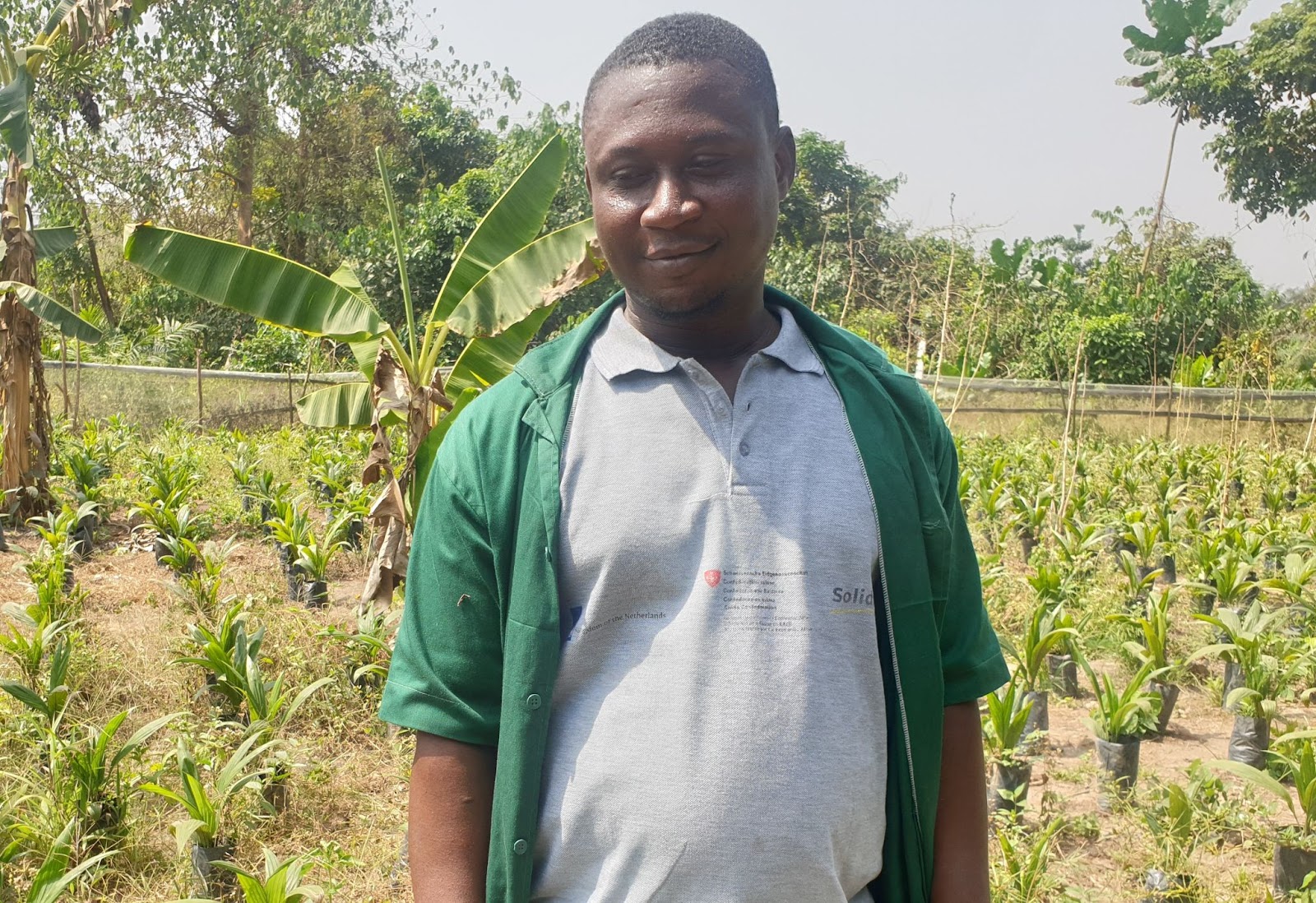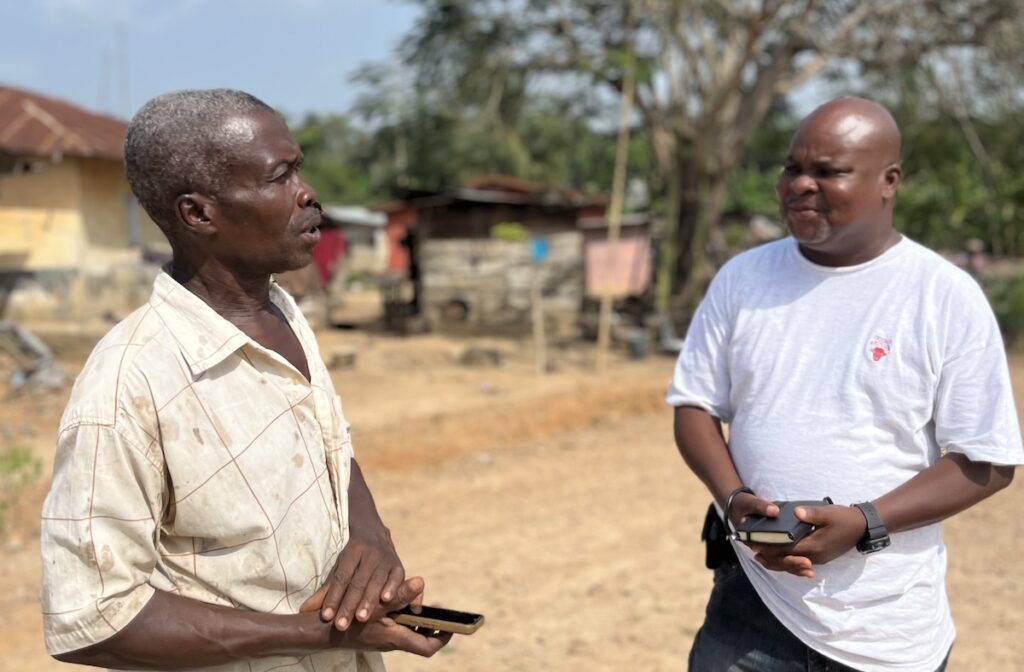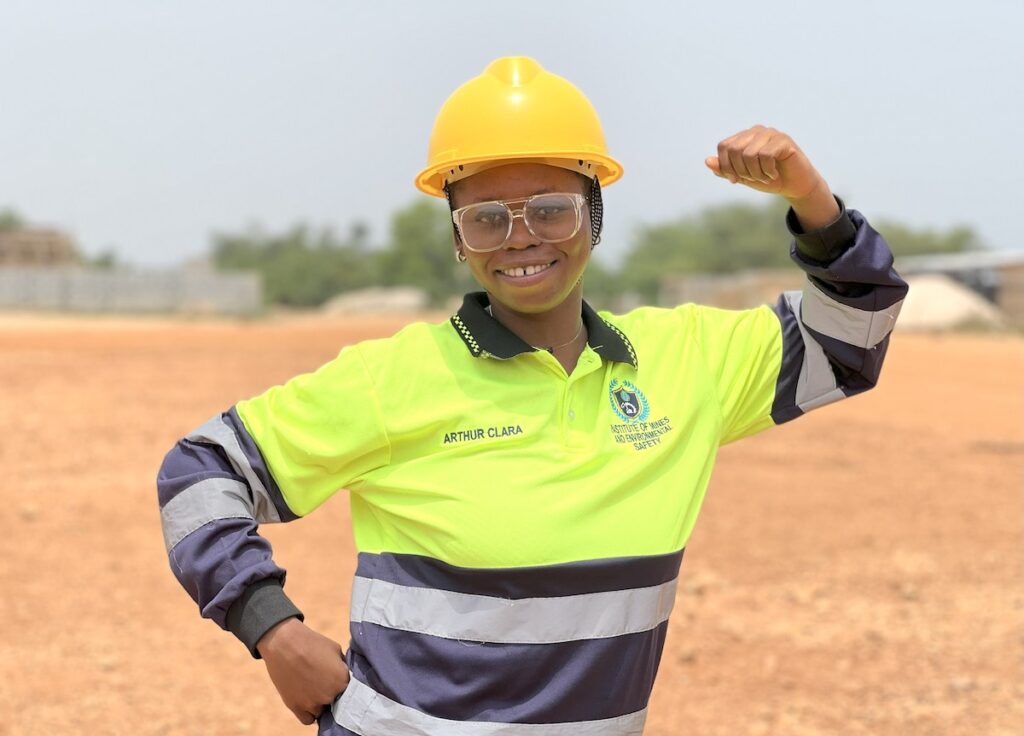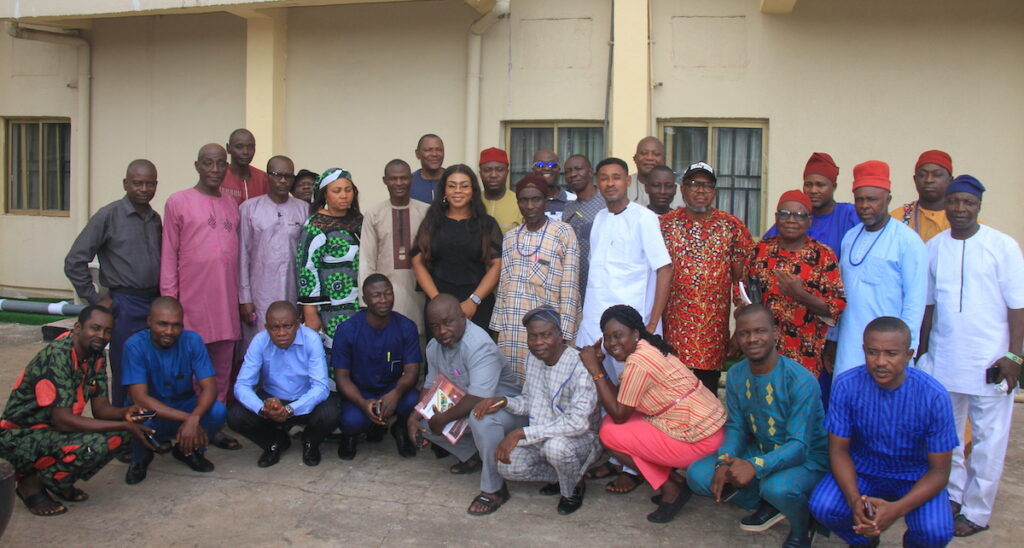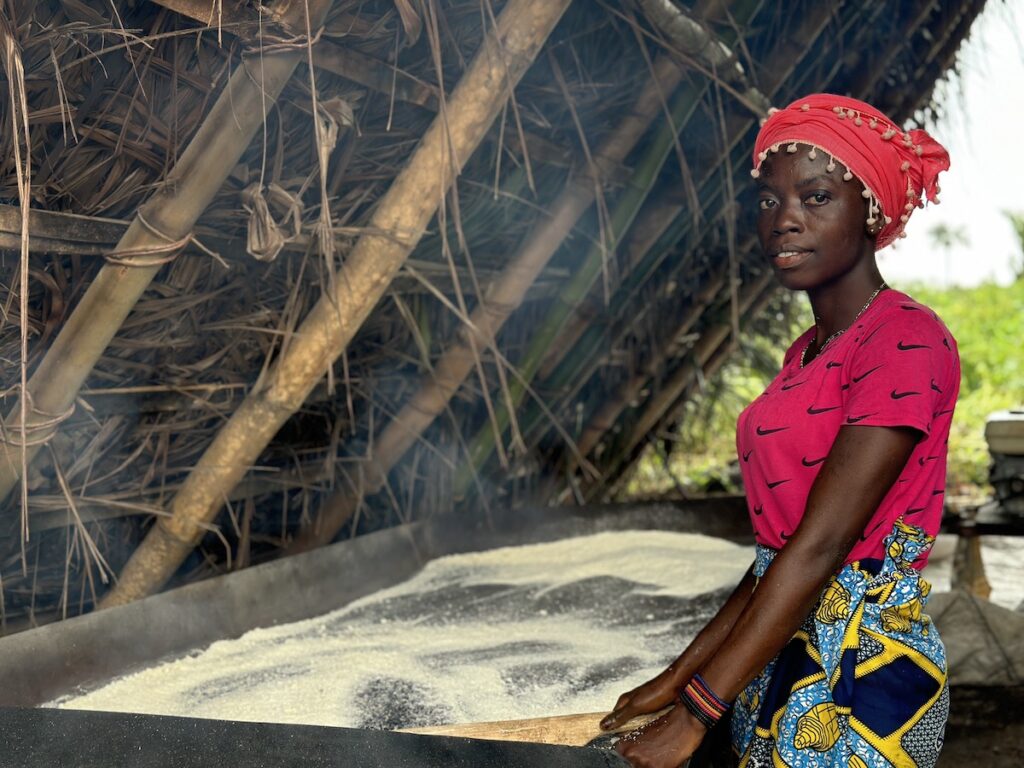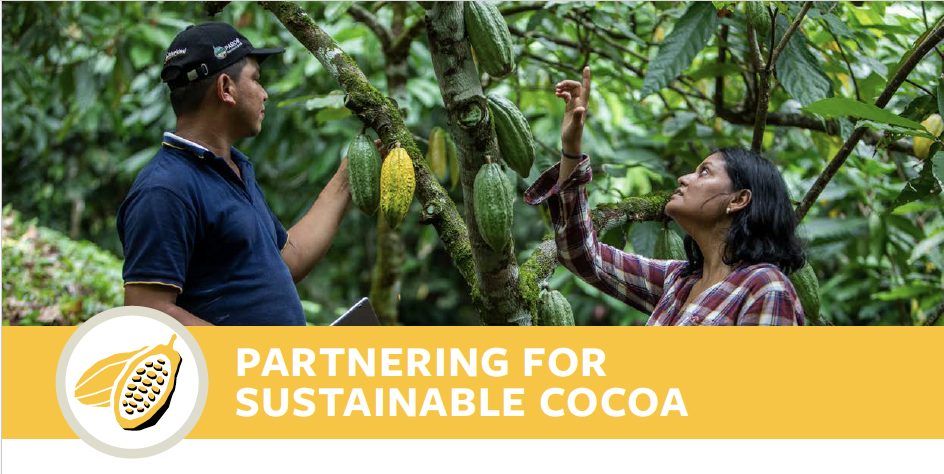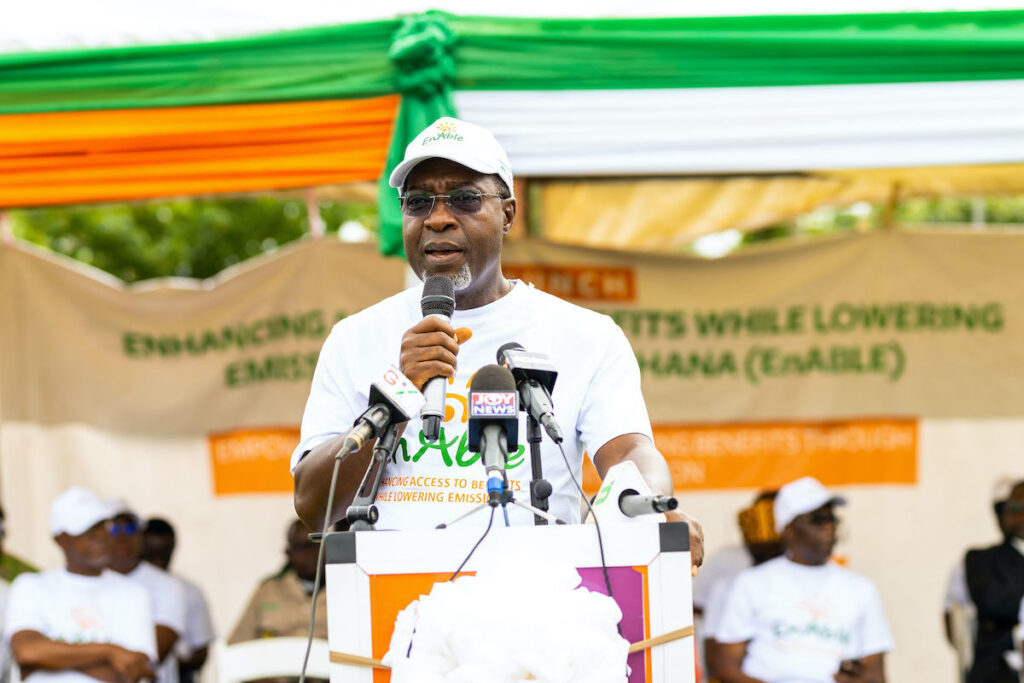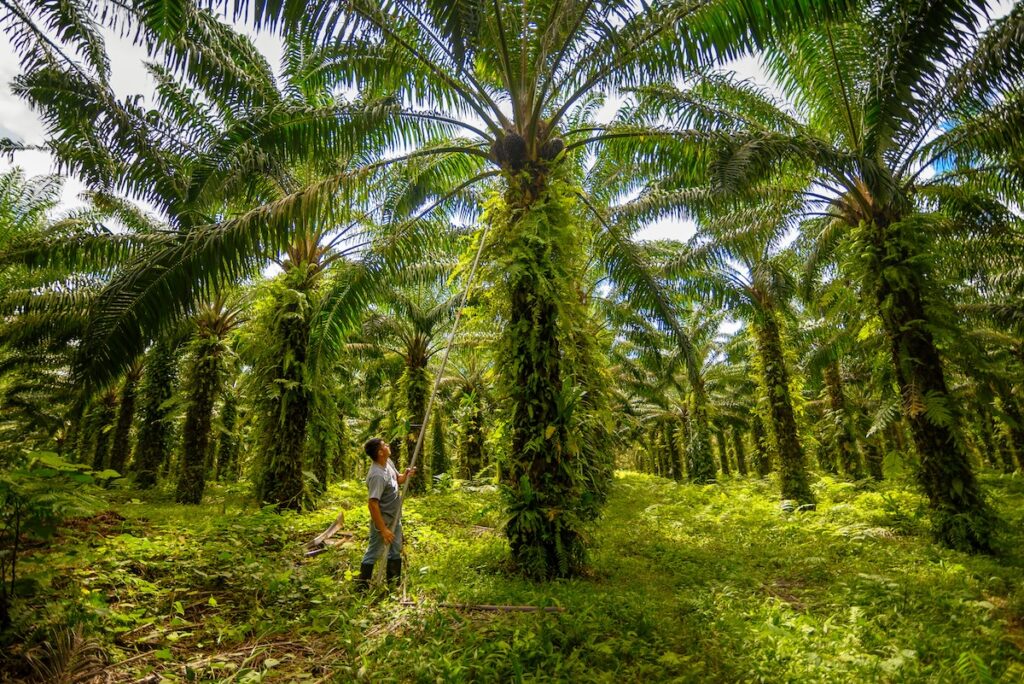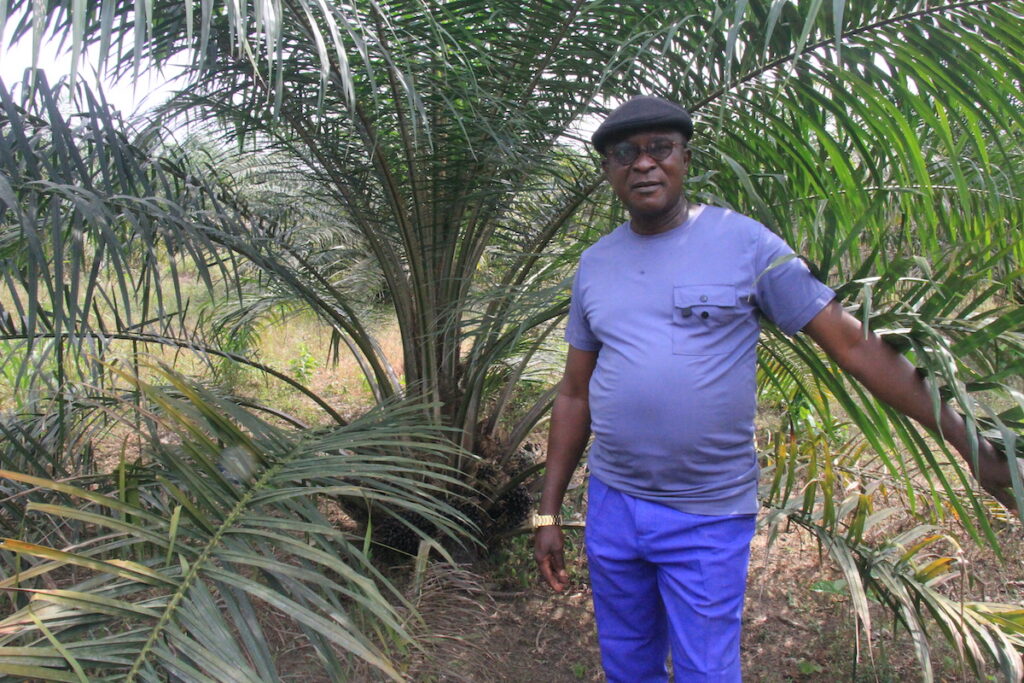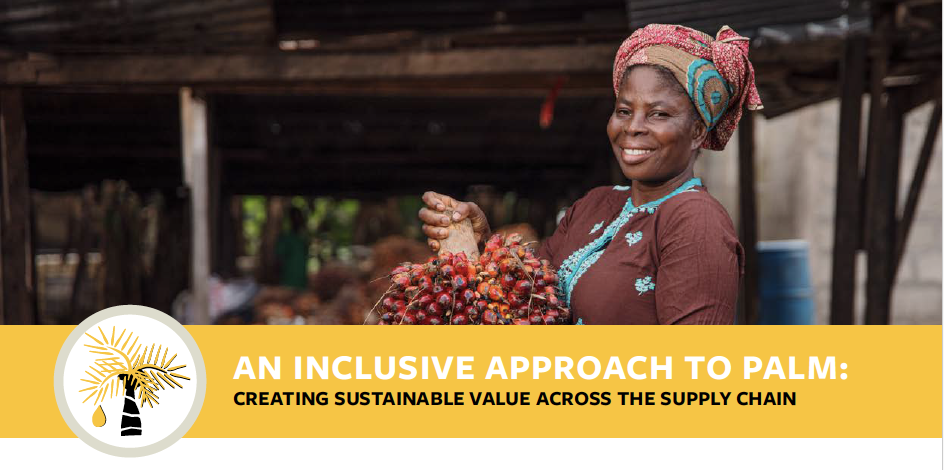For 38-year-old James Nyarko of the Adwafo community in Ghana’s eastern region, life now couldn’t be better. And, he has his eyes set on an even more rewarding future as he reflects on all the opportunities that have come his way after graduating from the 10-week competency-based training (CBT) in oil palm in early 2021.
The initiative forms part of the implementation of the second phase of the Sustainable West Africa Palm Oil Programme, with funding from the Embassy of the Kingdom of the Netherlands in Accra, the Swiss government through its State Secretariat for Economic Affairs (SECO), and the Deutsche Gesellschaft für Internationale Zusammenarbeit GmbH (GIZ).
Improved knowledge in oil palm production
“Early on, I was awestruck as the trainers opened my eyes to the fundamentals of nursery establishment, the correct way to apply weedicides and fertilizers, oil palm processing and the business side of the oil palm commodity.”
“Soon, I became conscious of how much more I needed to know in order to succeed as an entrepreneur. The weeks that followed were even more fulfilling. The training delivered just what I needed, ” he says.
The senior high school leaver, who is married with one of his children still in school, says for a while, he could not raise enough money from his sole business to take care of his family’s needs.
Trading in cocoa beans was my only source of income but it was seasonal. At low peak, I struggled to raise enough money to handle my family obligations.
James Nyarko, Oil Palm Farmer
But after graduating from the competency-based training programme, James knew exactly what to do to increase his income.
Putting the knowledge into practice
After gaining a deeper understanding of the business side of oil palm, he decided to offer farm management services to farmers for a fee.
With the support of my team, comprising some youth from my area, I now manage about 20 acres of oil palm fields belonging to two individuals. I make an average of 1,500 cedis (approx. USD 200) every three months by delivering circle weeding, pruning, slashing as well as fertilizer and weedicide application by providing these services.
James Nyarko, Oil Palm Farmer
Because of the quality of services he offers, James says he has become the toast of the farmers in the area. They prefer to use his services rather than other vendors.
“The farmers appreciate what I do for their farms and they are excited as they see real results from the management services I provide. It makes me happy knowing that I could be of such critical support to improve yield and productivity,” says James.
Providing other services along the value chain
Beyond providing farm management practices in oil palm fields, James says the CBT programme has empowered him to consider other ways to increase his income in the oil palm value chain. He raises an oil palm nursery too.
With an improved knowledge of the varieties of oil palm, James knows exactly the right kind of seed to nurse to meet the rising needs of farmers in his area.
“I have raised about 3,300 seedlings of tenera oil palm in my nursery, covering about three-quarters of an acre, employing five labourers”.
“This variety is preferred by most farmers and processors because it has a bigger pulp with a less thick shell, making it ideal for generating relatively higher volumes of palm oil. Even though I am yet to sell these seedlings during the main cropping season, I am upbeat about the potential revenue I would generate from it,” he says.
With his entrepreneurial skills honed, James trades in palm kernel, from which he earns a supplementary income of at least 3,000 cedis (approx. USD 400) per annum.
Even more profitable to him is bulk trading in palm oil – buying the oil in large quantities for storage when prices are low and selling them when the commodity is in high demand, thereby making a windfall. He employs four others to help him in this business.
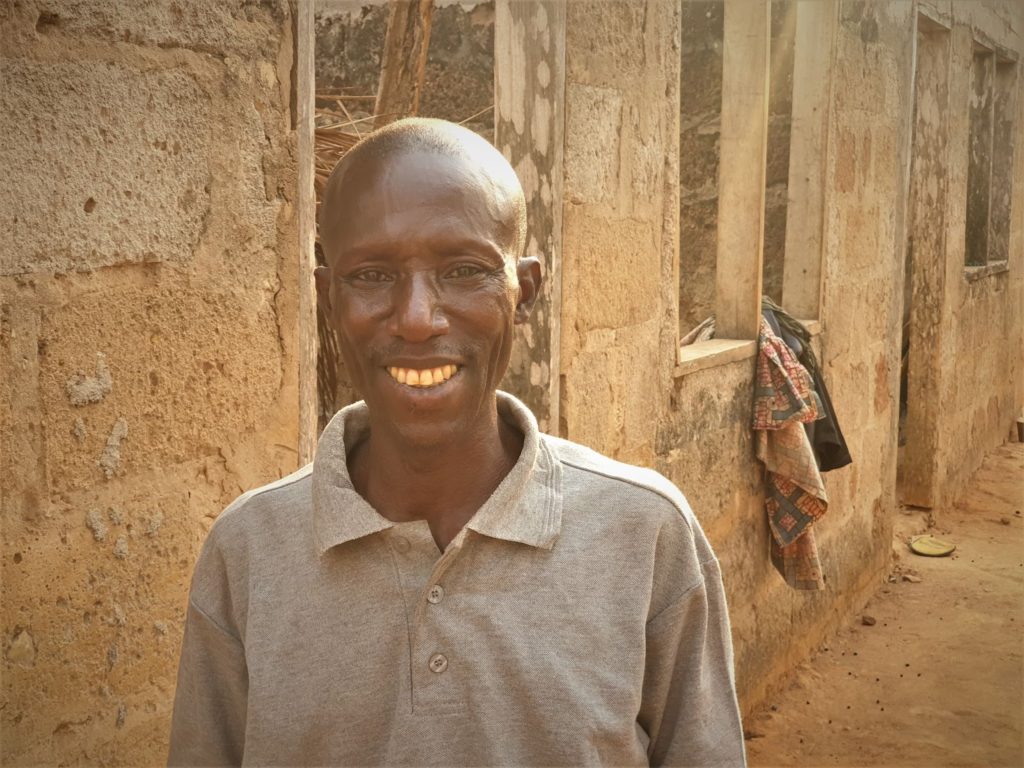
Microcredits in oil palm create community impact
William Kwabena Marfo is making the most of his participation in Solidaridad’s Sustainable West Africa Oil Palm Programme. Not only is he seeing improved yields, he is now aspiring for RSPO certification.
James hopes to cultivate his own oil palm field in future once he acquires a piece of land, which, he says, is quite scarce in his area. Now, though, he counts his blessings every day.
“I make enough money from my hard work. I am able to keep my daughter in a good school, support my siblings through senior high school, see my wife through nursing training and take care of all the financial needs of my family, including that of my mother.”
“I do all of these without borrowing from any individual or a bank. In fact, I have more than 25,000 cedis (approx. USD 3,300) sitting in my account, which I can use to expand my business once the opportunity arises”, James says with pride.
James is one of the more than 500 youth who benefitted from the CBT programme.
Training modules under the competency-based training
Solidaridad developed the training programme in partnership with the Ghana Skill Development Initiative to equip young people with employable and entrepreneurial skills for the oil palm sector. It covers six modules including:
- Nursery establishment
- Land preparation and plantation establishment
- Harvesting
- Farm management
- Processing and quality assurance
- Agribusiness management
Once empowered with the right knowledge, skills and training, the youth would be better placed to set up businesses in the oil palm supply chain to help boost Ghana’s profile in the global palm oil production space as James has demonstrated.
With his record-keeping skills now improved coupled with sound knowledge in financial management and appropriate investment, James is poised to expand his farm management services to farmers and grow his business.
“I owe my progress and transformation in agri-business to the SWAPP intervention under which the CBT programme was nested. Clearly, my life now cannot be separated from the support I received and I am very grateful. My wish now is to impart the knowledge to as many youth as may be willing to learn and do something meaningful with their lives,” says James.

